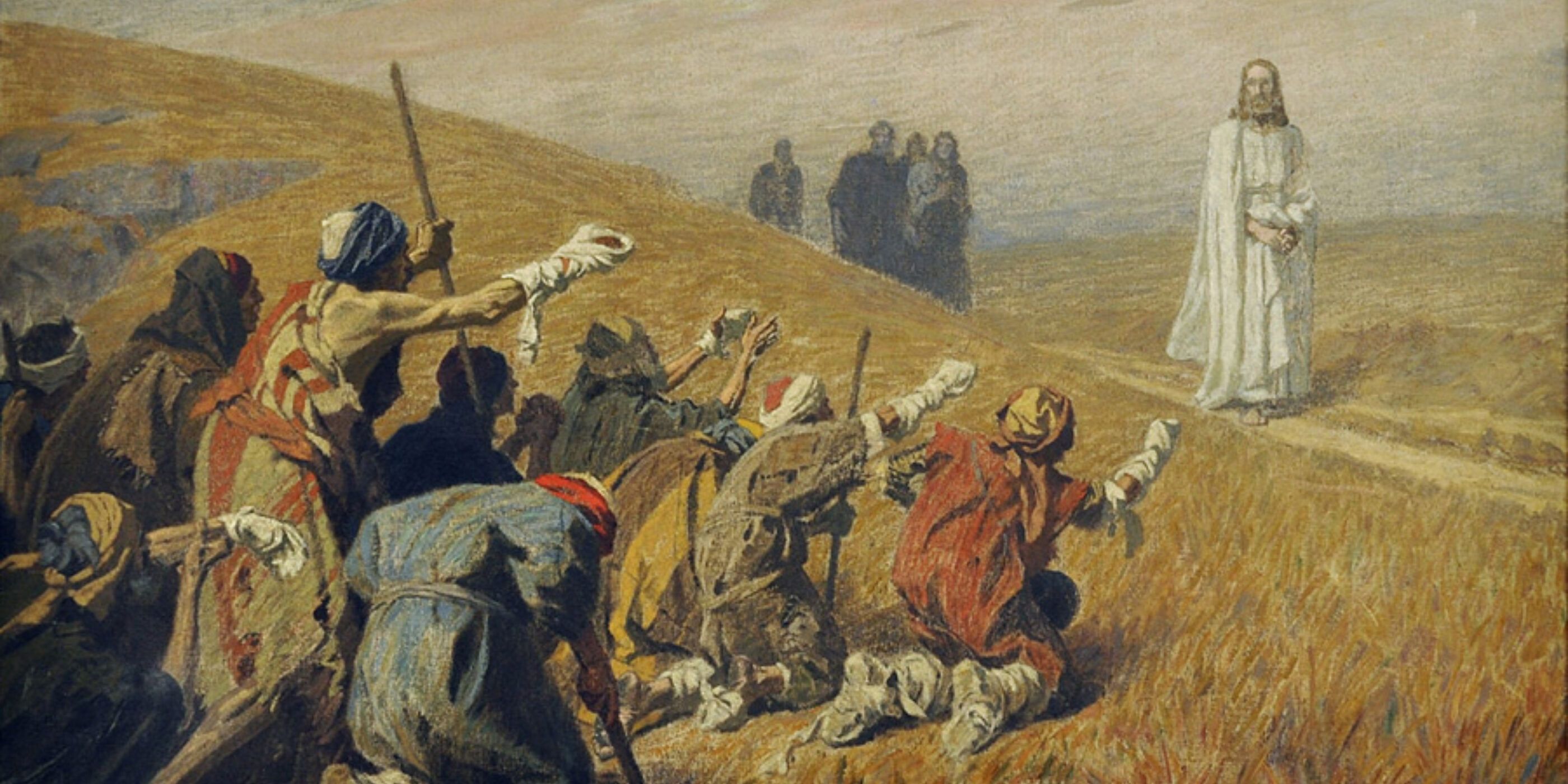By: Fr. Michael MacInnis, Director of Human Formation | Spiritual Director
In our Gospel today the grateful Samaritan “fell at the feet of Jesus and thanked him.” Our readings today invite us to reflect on the themes of healing, mercy, and gratitude. In our first reading, Naaman the Syrian is healed from leprosy. His response is one of gratitude. Having been healed, Naaman recognizes that God was powerfully at work through Elisha the prophet, and he makes a public profession of his conviction. He said, “Now I know that there is no God in all the earth, except in Israel. Please accept a gift from your servant.”
Our Gospel is also clearly about healing, mercy, and gratitude in this account of the healing of 10 lepers. We heard the lepers approach Jesus crying out, “Jesus, Master! Have pity on us!” Jesus heals them, and “one of them, realizing he had been healed, returned, glorifying God in a loud voice; and he fell at the feet of Jesus and thanked him.”
In our readings today, whether it is Naaman or the leper in our Gospel – we see something important about their gratitude. In each of them, the very act of giving thanks changes them. God did something for them and then, their expression of gratitude helped to change them in an even more profound way. God changed more than their illness; He changed their hearts. The leper in the Gospel hears the life-giving words from the Lord: “Stand up and go; your faith has saved you.”

The Eucharist sheds light on this movement of grace. The very word Eucharist comes to us from the Greek word meaning “to give thanks.” So, when we gather around the Eucharistic Table, we are like Naaman or the leper in our Gospel. We have returned glorifying God and giving thanks. That is what we do every time we gather for Eucharist.
The Church's traditional language says it this way: in the act of consecration during the Eucharist, the substance of the bread and wine is changed by the power of the Holy Spirit into the substance of the Body and Blood of Jesus Christ. While the appearances of bread and wine remain. This change at the level of substance from bread and wine into the Body and Blood of Christ is called transubstantiation. God changes what is most important – He changes its deepest reality, the very identity of the bread and wine into the full and complete presence of Jesus' Body and Blood, Soul and Divinity.
Saint Augustine said of the Eucharist, “We become what we receive.” So, we receive the Body of Christ in the Eucharist that we may become the presence of Christ for each other and for our world. We are meant to be Eucharistic people: giving thanks and then share His presence and His love with our world. Only then can God do to the whole world, what He has done to that bread and wine and what He does to us – change us into His Son, transforming us and the world. Giving thanks changes us. The Catechism rightly directs us: the Eucharist is “the source and summit of the Christian life.” (CCC 1324) So, for us, our gratitude flows from the Lord and returns to the Lord.
At Saint John’s Seminary we are blessed with marking our days with being grateful to God, growing in our relationship with the Lord; centered around the Eucharistic Lord as we celebrate daily Mass and adore the Lord at Holy Hour each evening. We are very grateful for all of you who support the Mission of the Seminary through prayer and material support. May all of our work, sacrifices, and prayers be rooted in thankful hearts and give glory to God. “He fell at the feet of Jesus and thanked him.” Let us fall at the feet of Jesus, thank Him, and let this act of thanksgiving change and transform us into His image, His body, His very presence in our world.

